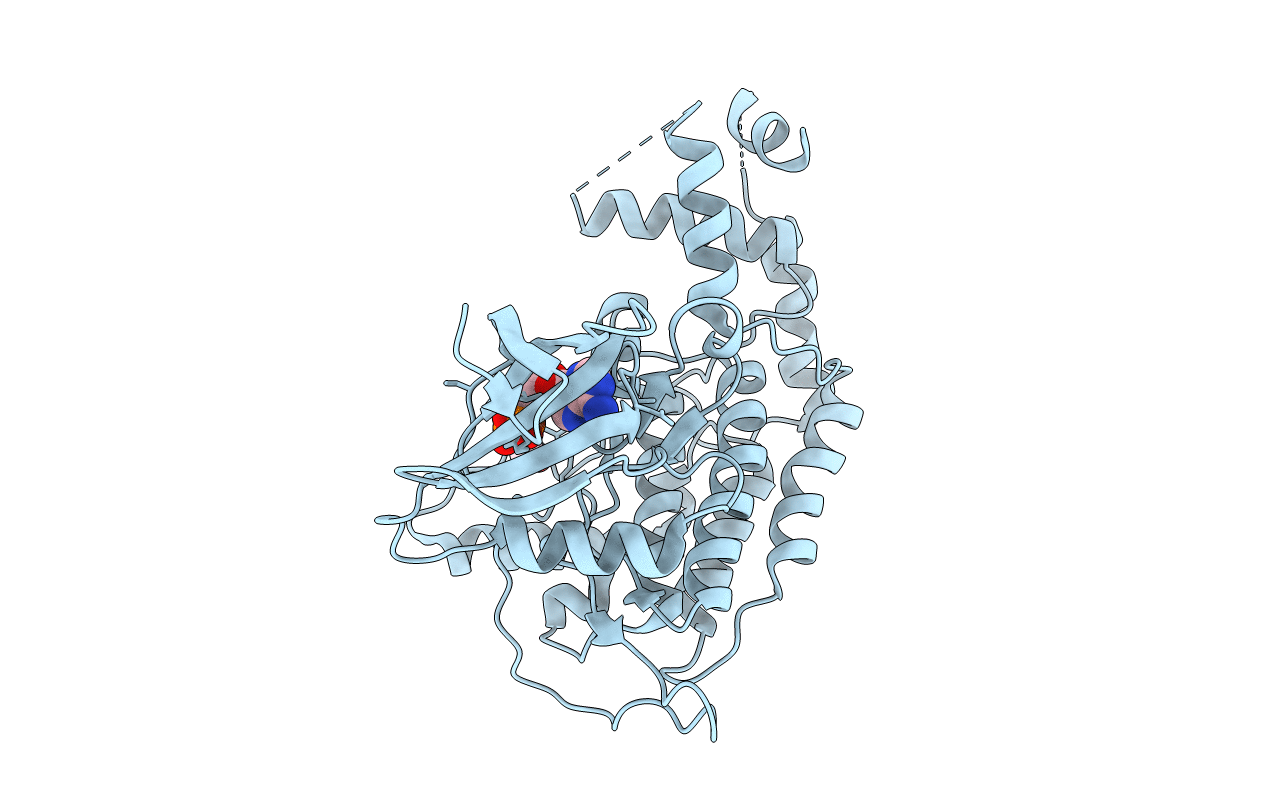
Deposition Date
2015-01-05
Release Date
2016-01-06
Last Version Date
2023-09-27
Entry Detail
PDB ID:
4XHG
Keywords:
Title:
Structure of C. glabrata Hrr25 bound to ADP (formate condition)
Biological Source:
Source Organism(s):
Candida glabrata (Taxon ID: 5478)
Expression System(s):
Method Details:
Experimental Method:
Resolution:
2.15 Å
R-Value Free:
0.21
R-Value Work:
0.17
R-Value Observed:
0.17
Space Group:
P 21 2 21


